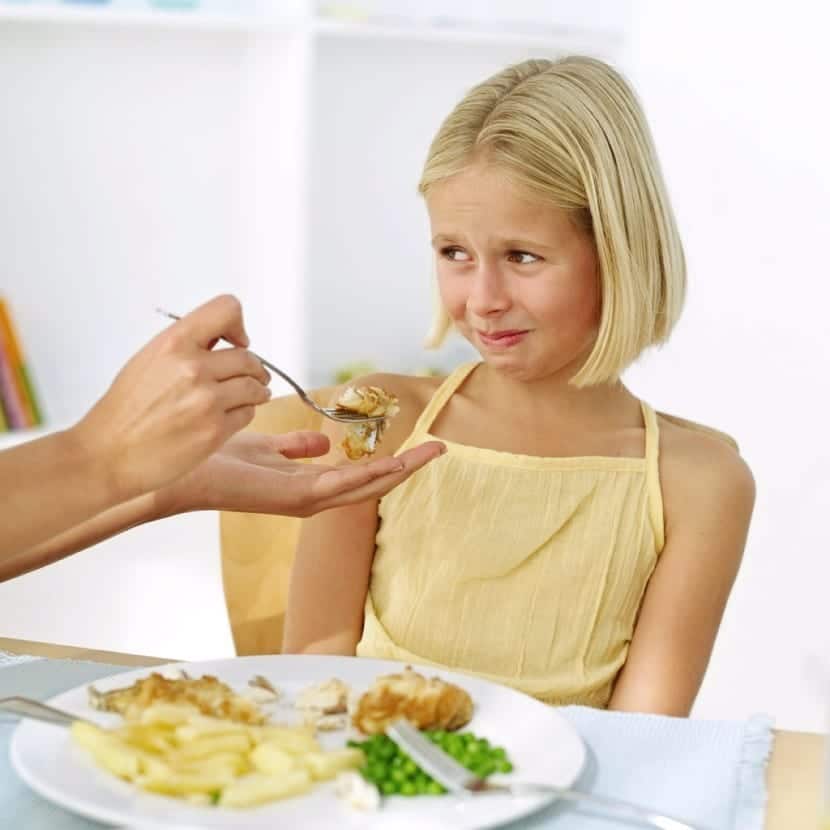
In recent years, the media have increased their news about the problems that young people today suffer from food problems. Some of these eating disorders are bulimia, morbid obesity or anorexia.
However, despite attributing this problem to women and youth, we do not realize that it is becoming much more frequent for these diseases to originate in very early ages. The latest studies estimate that 8% of those who suffer from these diseases are less than 10 years old.
In a past article we talked about the Childhood obesity and how it affected children. Today we will focus on anorexia, since pediatric consultations have increased in a large number of small patients suffering from this terrible disease.
What is anorexia and why does it originate?
Adult anorexia is an eating disorder in which people become obsessed with being thin. Their mind reflects a totally different body than what their eyes see, so they do not want to eat to avoid gaining weight. However, infantile anorexia differs from adult anorexia in that the child, even when having an appetite, they refuse to eat due to lack of appetite, without having a clear idea why.
The main consequence of anorexia occurring at such a young age is serious family conflicts that affect the child himself. All this worry lived in a separate home makes the child feel bad, lowering his self-esteem and affecting the relationship with his parents and other people around him.
The originality of the problem may vary for different causes:
- Psychological - Around conflictive relationships with one of the parents, jealousy towards his little brother, etc.
- Organic - Due to an underlying disease that causes loss of appetite. In this case, you have to identify and cure this disease.
- Functional - an alteration in the development of the eating habit. Bad eating habits can lead to anorexia.
On the other hand, infantile anorexia should not be confused with anorexia nervosa, a different clinical picture that may appear at another time in life, such as puberty (around 12 years of age). Besides this there are other types of anorexia.
Types of anorexia
- Infant anorexia - It is very rare, although it is more associated with a disease associated with some symptoms similar to this disease.
- Physiological anorexia - Related to the decrease in the body's needs in the second year, with the erroneous idea that parents and grandparents have that they should continue to eat the same foods from 12 months of age.
- Psychogenic anorexia - Excessive tax on food.
Signs and symptoms to detect anorexia in children
- The characteristic signs To realize that children are suffering from this terrible disease are:
- Take into account the excess weight loss in a short period of time.
- Inordinate desire to lose weight even being thin, thus delaying its development and growth.
- Constant physical exercise.
- Excessive observation of calories of all the food you are going to eat.
- Use of uncontrolled laxatives and diuretics.
- As for symptom of anorexia nervosa:
- Yellowing of the skin as a result of the increase of carotenes in the organisms.
-Brittle nails.
-Hair loss.
- Low levels of red blood cells causing anemia.
- Numerous cracks over the entire surface of the skin.
Treatment to prevent anorexia
Feeding time should be paramount for children, where it mixes family and communication at all times. In a correct family communication where there is respect and tolerance regarding the typical corrections in children relating manners and eating behavior, it will be a reason for happiness in the child showing much more receptive when it comes to eating or eating unfamiliar foods and maintaining a order sitting at the table.
They must be taught from a very young age that food and, therefore, eating or feeding is a vital process in survival and, maintaining healthy lifestyle habits will be the consequence of having an excellent body and health.
In recent times, children's beauty pageants They have had a lot, and continue to have it, a lot of media coverage in many countries, causing an excessive cult of the body and aesthetics, contracting difficult stages in the not too distant future.
Therefore, subjecting children to beauty treatments and diets to win a simple contest is a little educational method for such tender ages, since this causes an early obsession and extreme behavior in terms of the physical, without taking into account the intellectual. In other words, making a childhood of adults in a world of children.
